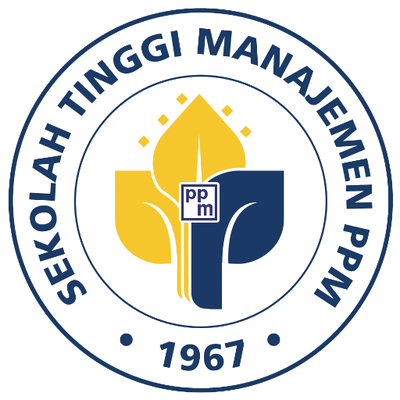A Delphi Method Exploration of Performance Pressures and Ethical Leadership Compromises in Business Organizations
Abstract
Keywords
Full Text:
PDFReferences
Banks, G.C., Fischer, T., Gooty, J., & Stock, G.B. (2020). Ethical leadership: Mapping the terrain for concept cleanup and a future research agenda. The Leadership Quarterly.
Bateman, T. S., Snell, S. A., & Konopaske, R. (2019). Management: Leading & collaborating in a competitive world (13th ed.). McGraw-Hill.
Botha, S., & Musengi, S. (2012). Introduction to business management: Fresh perspectives. Pearson.
Brown, M. E., & Mitchell, M. S. (2010). Ethical and unethical leadership: Exploring new avenues for future research. Business Ethics Quarterly, 20(4), 583-616.
Business Insider SA. (2020). The biggest South African business scandals over the past decade. Retrieved December 2020, from https://www.businessinsider.co.za/the-top-south-african-business-scandals-the-past-decade-2020-1
Competition Tribunal of South Africa. (2009). Retrieved March 17, 2020, from http://www.comptrib.co.za/.
Donaldson, T., & Dunfee, T. W. (1994). Toward a unified conception of business ethics: Integrative social contracts theory. Academy of Management Review, 19(2), 252-284.
Drezner, D. W., & McNamara, K. R. (2013). International political economy, global financial orders and the 2008 financial crisis. Perspectives on Politics, 11(1), 155–166.
Eisenbeiss, S.A., & Giessner, S.R. (2012). The Emergence and Maintenance of Ethical Leadership in Organizations: A Question of Embeddedness? Journal of Personnel Psychology, 11, 7-19.
Fletcher, A. J., & Marchildon, G. P. (2014). Using the Delphi Method for Qualitative, Participatory Action Research in Health Leadership. International Journal of Qualitative Methods, 13(1), 1-18. https://doi.org/10.1177/160940691401300101
Freeman, R. E. (1994). The politics of stakeholder theory: Some future directions. In R. A. Phillips & R. Edward Freeman (Eds.), Stakeholders (pp. xx-xx). Edward Elgar Publishing Ltd.
Freeman, R. E., & Dmytriyev, S. (2017). Corporate social responsibility and stakeholder theory: Learning from each other. Symphonya. Emerging Issues in Management, (1), 7–15.
Friedman, M. (1970, September 13). The social responsibility of business is to increase its profits. The New York Times Magazine. http://umich.edu/~thecore/doc/Friedman.pdf
Kaplan, R. S., & Norton, D. P. (1992). The balanced scorecard: Measures that drive performance. Harvard Business Review, 70(1), 71-79.
Kalshoven, K., Den Hartog, D. N., & De Hoogh, A. H. (2011). Ethical leadership at work questionnaire (ELW): Development and validation of a multidimensional measure. The leadership quarterly, 22(1), 51-69.
Kent, S. (2018). The effects of coping interventions on the ability to perform under pressure. Journal of Sports Science and Medicine, 17(1), 40–55.
Kiss, L.B. (2019). Examination of the Role of Business Ethics with Google Trends. Business Ethics and Leadership.
Ko, C., Ma, J., Bartnik, R., Haney, M.H., & Kang, M. (2018). Ethical Leadership: An Integrative Review and Future Research Agenda. Ethics & Behavior, 28, 104 - 132.
Miles, S. (2017). Stakeholder Theory Classification, Definitions and Essential Contestability. 21–47.
Mitchell, M. S., Baer, M. D., Ambrose, M. L., Folger, R., & Palmer, N. F. (2018). Cheating under pressure: A self-protection model of workplace cheating behavior. Journal of Applied Psychology, 103(1), 54-73.
Mitchell, R. K., Agle, B. R., & Wood, D. J. (1997). Toward a theory of stakeholder identification and salience: Defining the principle of who and what really counts. Academy of Management Review, 22(4), 853-886.
Nicolaides, A., & Duho, K. (2019). Effective Leadership in Organizations: African Ethics and Corruption. Modern Economy.
Okoli, C., & Pawlowski, S. D. (2004). The Delphi method as a research tool: An example, design considerations and applications. Information & Management, 42(1), 15–29.
Overstreet, R. E., Hanna, J. B., Byrd, T. A., Cegielski, C. G., & Hazen, B. T. (2013). Leadership style and organizational innovativeness drive motor carriers toward sustained performance. International Journal of Logistics Management, 24(2), 247-270. https://doi.org/10.1108/IJLM-12-2012-0141
Pops, G. (2006). The ethical leadership of George C. Marshall. Public Integrity, 8(2), 165–185.
Roy, A., Newman, A., Round, H., & Bhattacharya, S. (2024). Ethical Culture in Organizations: A Review and Agenda for Future Research. Business Ethics Quarterly, 34(1), 97–138. doi:10.1017/beq.2022.44
Rubin, R. S., Dierdorff, E. C., & Brown, M. E. (2010). Do ethical leaders get ahead? Exploring ethical leadership and promotability. Business Ethics Quarterly, 20(2), 215–236. https://doi.org/10.5840/beq201020216
Shin, Y., Sung, S. Y., Choi, J. N., & Kim, M. S. (2015). Top management ethical leadership and firm performance: Mediating role of ethical and procedural justice climate. Journal of Business Ethics. https://doi.org/10.1007/s10551-014-2144-5.
Wart, M.V. (2014). Contemporary Varieties of Ethical Leadership in Organizations. International Journal of Business Administration, 5, 27-45.
Yukl, G., & Michel, J. W. (2006). Proactive influence tactics and leader member exchange. Power and influence in organizations, 87-103.
Yukl, G., Mahsud, R., Hassan, S., & Prussia, G. E. (2013). An improved measure of ethical leadership. Journal of leadership & organizational studies, 20(1), 38-48.
Zimbardo, P. G., & Leippe, M. R. (1991). The psychology of attitude change and social influence. McGraw-Hill.
DOI: https://doi.org/10.34149/jmbr.v21i2.541
Indexing
JMBR Editorial Office: PPM School of Management, Jl. Menteng Raya 9-19 Jakarta 10340 Phone: 021-2300313 ext 2354

License
JMBR is using CC BY License
This work is licensed under a Creative Commons Attribution 4.0 International License.



















